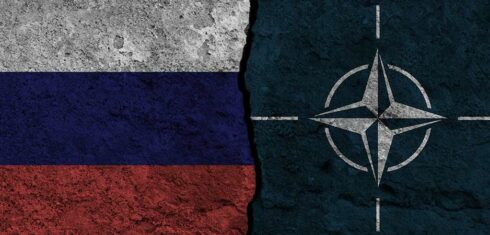In a recent statement, Estonian president said that discussing security issues with Russia in “out of the question”.
Written by Lucas Leiroz, researcher in Social Sciences at the Rural Federal University of Rio de Janeiro; geopolitical consultant.
At a time of intense tensions between Russia and NATO, there are on the one hand proposals for dialogue to calm the conflicts and, on the other, destabilizing positions in favor of increased frictions. Recent speeches by the Estonian president show that his country is willing to boycott the dialogue between Moscow and the West. Regrettably, this stance tends to expand beyond the Estonian government, including all the Baltic states and even some other countries.
In a recent statement, Estonian President Alar Karis stated that any possible discussion between NATO and Russia on security proposals is currently “out of the question”. At the occasion, he also stated that Russia has a “long list of not wishes, but downright commands”, against which NATO must be united – not divided – in the elaboration of a joint response plan. According to him, the West must be united against Russian interests, and there must be no dialogue in search of common solutions. His radical stance reflects a truly anti-pacific stance, in favor of an arrogant superimposition of Western interests over Moscow.
These were some of Alar Karis’ words: “Everything is simple with Russia’s demands. They need to be put aside and [we should] come forward with our thoughts. If we start discussing them, then I think we will have a problem. As a result, at some point, relations with Russia should still enter into some reasonable framework. No one wants escalation. But to discuss these points, I think, is out of the question (…) We must keep up with our allies and not let [Moscow] divide us, which, for obvious reasons, is one of the goals of today’s Russia: to make us quarrel”.
While Russian and Western officials organize a summit in order to alleviate tensions, the Estonian government’s position can have a strong destabilizing effect, with serious consequences for the stability of international relations. Karis believes that Western nations should be focused on producing containment plans against Russia rather than pursuing dialogue. This type of posture, interestingly, comes from a Baltic state, with low defense power and absolutely dependent on NATO for the formation of its defensive forces. This phenomenon has been increasingly common: the weaker militarily and more dependent on NATO, the more anti-Russian and pro-conflict the states have been.
The Baltic States, Ukraine, Poland, and others are examples of this type of destabilizing role, in which nations with low military power make room in their territories for NATO expansionism against a supposed “Russian threat”. And these same countries are in favor of more and more coercive and violent measures against Moscow. The confidence of these states in NATO as a partner in any conflict situation is the reason why these countries encourage so much rivalry with Russia. However, these governments do not yet seem to have realized that NATO’s own willingness to dialogue with Russia is an indication that the military alliance is not interested in this kind of antiquated thinking spread by Western officials.
Last week, Moscow had published some drafts of possible agreements with the US and NATO. The Russian government’s demands for an agreement aims to end Western expansionism in the region bordering Ukraine. Later, on Thursday, the White House said it publicly rejected several of the points demanded by the Russians but guaranteed that it would negotiate for an agreement to be reached. On the weekend, NATO Secretary General Jens Stoltenberg announced that he wants a summit to take place on 12 January. The schedule has not yet been made official, but it is very likely that the meeting will take place soon and that the agendas will be discussed.
With this, there is a scenario in which the NATO superstructure is willing to negotiate with Russia – although, of course, the organization is still very reluctant to give up part of its interests – while smaller member states such as Estonia, and external allies such as Ukraine are unwilling and adopt a more belligerent and anti-Russian stance. This scenario is a direct consequence of Western propaganda promoted by NATO itself, alleging the existence of a Russian threat or invasion plan. Countries with lesser importance within the alliance tend to adopt these narratives as unquestionable facts, while the governments of the great powers know that these are just fake news. As a result, the smaller states become more radical in their hatred against Russia, while the US and other powers deal with the situation more rationally.
The trend now is that there is a strong polarization in NATO. Certainly, the Estonian position will not be isolated, and the other Baltic states will also adopt it. The same can be expected from Poland and some other member states, as well as external allies. The summit will certainly occur, and it is possible that the results of the negotiations will be good and profitable for both sides. But that will not be enough to stop the decline in unity and credibility of the Western military alliance, which will become more fragile, polarized, and unable to serve the interests of its members.





I always sympathize with the Baltic states.
When one sets up as a willing patsy, don’t be surprised when people take advantage. The admins of the Baltic states have a gut feeling that they shouldn’t be cutting Russia adrift. They do so at their peril and because of washingtub and nato pushing their buttons.
The last time some Baltic states joined in a western attack on Russia, it didn’t end well.
I love Estoners. Both of them.